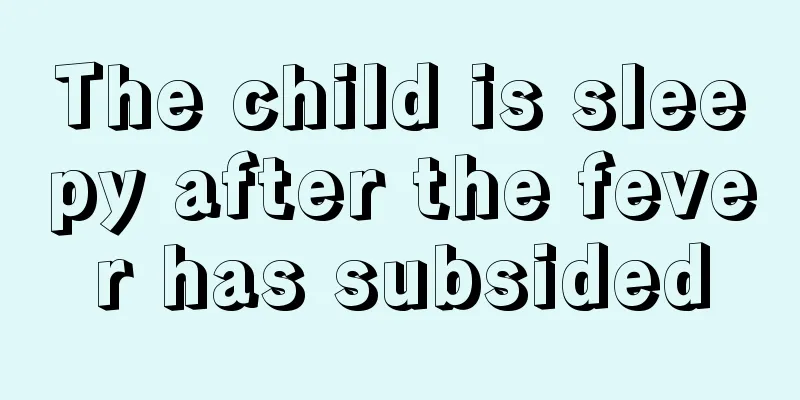Baby's throat is gurgling

|
The baby is the focus of the family. If the baby has certain discomfort symptoms, the parents will be particularly anxious and worried. For example, a gurgling sound in the baby's throat is a phenomenon that many parents have encountered. This phenomenon may be a victory phenomenon that does not require worry, or it may be caused by phlegm in the throat or some other disease. 1. Normal physiological phenomenaThis situation often occurs in babies under one year old and is called laryngeal stridor, which is just like snoring. It is mainly caused by the incomplete development of the laryngeal cartilage in newborns and the softening of the laryngeal cartilage. When breathing and swallowing, the throat swings and makes a sound similar to phlegm. Tips: If the baby can eat and sleep and everything is normal, there is no need to see a doctor or take medicine. It will usually disappear on its own between 6 months and one year old. 2. Phlegm If the baby coughs and has phlegm, there will be a gurgling sound in the throat. Because the baby is still young, if there is phlegm in the throat, he doesn’t know how to cough it out, so he can only gurgle in the throat.
1. Congenital malformation of the larynx and trachea Congenital laryngeal webs are accompanied by laryngeal tinnitus, hoarseness or weak voice at birth. Those with large laryngeal webs may have difficulty breathing, so they must be diagnosed and treated early. Congenital hypertrophy of the subglottic elastic cone tissue or cricoid cartilage deformity can cause stenosis and obstruction of the subglottic cavity. In severe cases, there is laryngeal striatum at birth, but pronunciation and crying are normal. 2. Congenital laryngeal cyst or tumor Congenital laryngeal cysts, intralaryngeal thyroid or laryngeal tumors (hemangioma, papilloma) can all cause laryngeal stridor in neonates, which manifests as biphasic stridor with hoarseness or aphonia. The degree of breathing difficulty depends on the size of the tumor. Tumors of nearby tissues, such as cystic hygroma of the neck, thyroglossal duct cysts, congenital macroglossia, or an aberrant thyroid gland at the base of the tongue and congenital goiter, can cause respiratory distress but rarely cause stridor.
If a new mother also finds that her baby has a hoarse throat, don't worry, you can observe according to the above instructions. If you find that the symptoms are serious, you need to see a doctor in time. However, under normal circumstances, 60%-70% of newborns do not need treatment for hoarseness, and it will get better as the baby grows up! |
>>: The child is sleepy and has no energy and refuses to eat
Recommend
What are the symptoms of Trisomy 21?
Many people may not know what trisomy 21 is, but ...
An expanded introduction to rheumatoid arthritis in children
Not only adults can suffer from rheumatoid arthri...
What should I do if my baby has repeated fever and diarrhea?
For infants and young children, any kind of physi...
Baby crying while sleeping
Children always suddenly cry in the middle of the...
How to prevent newborn spitting up?
Since the stomach and throat of a newborn baby ar...
The baby has only one upper front tooth
We know that the incisors grow symmetrically, two...
Why does my baby grind his teeth while sleeping?
In our lives, many people have problems with teet...
How long does it take for the newborn to get rid of jaundice?
The birth of a baby brings not only joy to every ...
What to do if your child has indigestion and vomiting
Children have weaker constitutions and if they do...
Moxibustion for tic syndrome
Tourette syndrome is a relatively common disease ...
What should children pay attention to when changing their teeth?
Replacing new teeth is a process that every child...
Treatment of neonatal jaundice during its peak period
Nowadays, the incidence rate of newborns is getti...
What to do if a 2-year-old has vomiting and fever
Children are little angels given by God to their ...
What calcium tablets can children take to grow taller
When it comes to calcium supplementation for babi...
When should children take zinc supplements?
If there is a baby in the family, then there is n...









